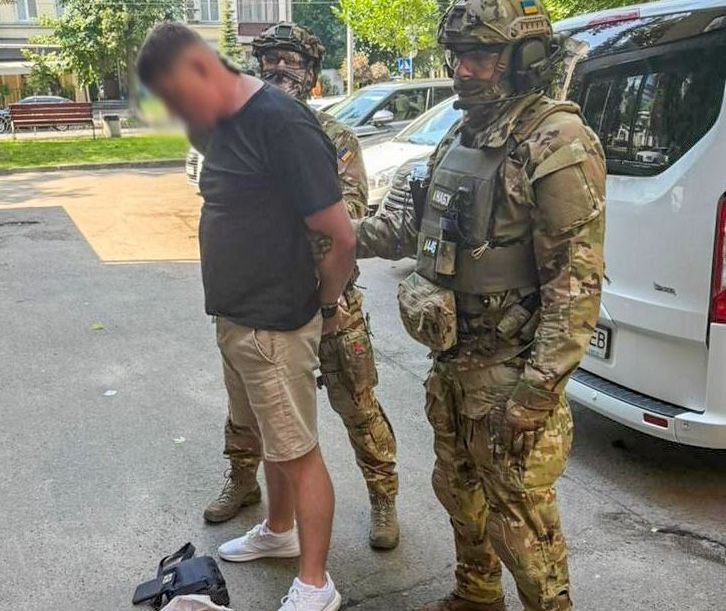'Better now than never' — Ukraine announces competition for anti-smuggling director 7 months late

After a seven-month delay, Ukraine’s government has finally launched a competition for a State Customs Service director to tackle illegal smuggling that costs the country billions of dollars every year.
The news comes as Ukraine faces pressure at home and abroad to push ahead with delayed reforms. The government’s decision to curtail the independence of two anti-corruption agencies on July 22 sparked the largest street protests since the start of the full-scale invasion and criticism from Kyiv’s international partners.
Prime Minister Yuliia Svyrydenko announced on Aug. 4 that a selection committee of three Ukrainian and international experts had been established to find a director.
The international committee members were selected in January as part of a customs reform law passed in late 2024 to align with benchmarks attached to funding programs with the International Monetary Fund and the World Bank.
But the government derailed the first attempt to form a commission after rejecting the three initial Ukrainian candidates in February "without any explanation," opposition lawmaker from the Holos Party, Yaroslav Zhelezniak, told the Kyiv Independent.
The Finance Ministry on Aug. 4 announced it had selected three Ukrainian committee members from the business sector: Andriy Yerashov, head of the analytical center of the Union of Ukrainian Entrepreneurs; Dmytro Oliynyk, chairman of the Council of the Federation of Employers of Ukraine; and Oleh Tymkiv, director of business development at the audit firm Moor Stevens.
"Now is better than never," said Zhelezniak, the main author of the customs reform bill, which aims to plug an estimated $2.4 to $3 billion in customs payments lost to smugglers annually.
He says the government, particularly Finance Minister Serhii Marchenko, blocked the committee under the orders of President Volodymyr Zelensky. The customs service is one of the most corrupt institutions in Ukraine, and high-ups in government, including those close to Zelensky, benefit from illegal smuggling schemes, according to Zhelezniak.
International candidates, a mixture of anti-corruption and customs experts, will have the final say in the competition’s winner to safeguard against political pressure.
"What's at stake here is billions of dollars in money that is still currently sloshing around in the shadow economy. By regaining that money for the state legitimately, you are taking it away from people who currently have their paws on it in less legitimate ways," Ukraine’s Business Ombudsman Roman Waschuk told the Kyiv Independent.
"Having genuinely independent people approach this means the breakdown of these long-established shadow arrangements."
Svyrydenko praised the launch of the competition on social media, calling it "an important step in the reboot of the customs service, which must become an effective and transparent body operating according to European standards." She didn’t provide an explanation for why the committee was only formed now, after the long delay.
When asked for an explanation by the Kyiv Independent, Svyrydenko’s team pointed us to the prime minister’s social media announcement, which does give a reason for the delay. The Finance Ministry did not respond to the Kyiv Independent’s request for comment by the time of publication.
The protests and international partners likely had an influence on the government’s decision to kick-start the customs competition, Olena Shcherban, deputy executive director of Ukrainian non-profit the Anti-Corruption Action Center (AntAC), told the Kyiv Independent. The customs reforms were part of the protestors’ demands, alongside the independence of anti-graft agencies and the appointment of the economic watchdog nominee, which the government had stonewalled.
"Before the protests, the authorities did everything to avoid any reforms, and international partners just stood by," Shcherban said.
"Afterwards, partners started to react and demand real reforms, and the government understood it should at least make some attempts to do something — that’s why we see today’s decision."
Many people, including those in the security service, are siphoning off money from illicit customs schemes, Shcherban said, adding that she thinks it’s almost definite that there will be interference in the customs head competition.
She points to the economic watchdog winner, Oleksandr Tsyvinsky, who went through a similar competition only to be unlawfully blocked by the government over his estranged father’s Russian citizenship. After pressure from the international community, including Brussels, the government reversed its decision. Tsyvinsky will likely take the reins of the Economic Security Bureau this week.
"There could some some new methods of influence (on the customs competition)," she said.












